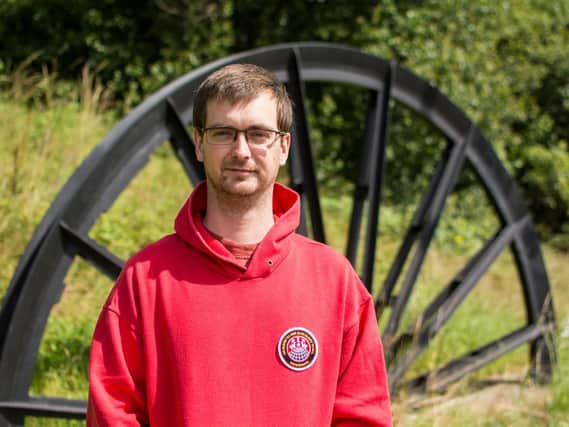Why I agreed to meet one of teenage yobs who pelted me with bottle in Sheffield


Luke Thorold was working at the Abbeydale Road Pizza Hut one evening when a young female colleague returned badly shaken, having being surrounded by youths in a nearby street and bombarded with stones and other missiles.After bravely setting out to confront them, he too was targeted and had a lucky escape when a bottle of Stella bounced off his helmet.The 32-year-old, from Grimesthorpe, captured the ordeal on January 1, 2014, via a video camera on his headgear, enabling police to identify and track down some of those responsible.Luke, who now works as a mechanic, agreed to meet one of the perpetrators in the flesh - a process known as restorative justice."We met at his school and I went in all hyped up and ready to have a right word with him, but the first words out of his mouth were 'I'm sorry', and from there it went really well," he said."From what I hear he's now keeping out of trouble, doing pretty well at school and hoping for As in his GCSEs."Meeting me made it personal for him, in the same way it did for me. Until then he was just an idiot who was attacking me but I've since been in that area again and he stopped me and we had a good old chat."I think watching the video helped him realise what he was doing. Before then he thought they were his streets and I was at fault because I wouldn't leave."If he talks to his friends and says this is the better way to do things, he will plant some seeds and hopefully they will grow."Coming face-to-face again with the culprit might sound like the last thing you'd choose to do as a victim of crime, but such meetings have been shown to empower victims, enabling them to hold the victim to account and move on.For the perpetrators, seeing the human price of their behaviour can be the spur they need to reform, and the Restorative Justice Council says it has been shown to reduce reoffending rates by at least 14%. Their participation can also lead to a more lenient punishment."For the victims, it depends on the crime, but in almost all cases I would recommend restorative justice," says Luke."In the worst-case scenario, your fears will be confirmed, and in the best case you will realise the offender's actually a person."For the perpetrators, there's always a second chance, they just have to engage. The alternative is that they get involved in the justice system and end up in prison, and that's no way to do things."Restorative justice doesn't have to involve a face-to-face meeting. The offender and victim could communicate via letters, video messages or through a facilitator, but both sides must volunteer to take part.Government research has shown every pound spent on restorative justice saves the public purse £8 by reducing reoffending, and one poll revealed 77% of people think victims have a right to meet their offender.But despite the evidence of its benefits, the Restorative Justice Council, an independent body promoting the process, says it remains massively underused.Speaking ahead of Restorative Justice Week, which runs from November 20-27, RJC chief executive Jon Collins said it was vital to raise awareness among victims and offenders."It's widely acknowledged that restorative justice works, and the government strongly supports its use. Robust evidence shows it provides at least a 14% reduction in reoffending and an 85% victim satisfaction rate," he said."The challenge now is letting victims and offenders know about it and how to take part, and making sure that as it becomes more widely available, it continues to be done safely and well."